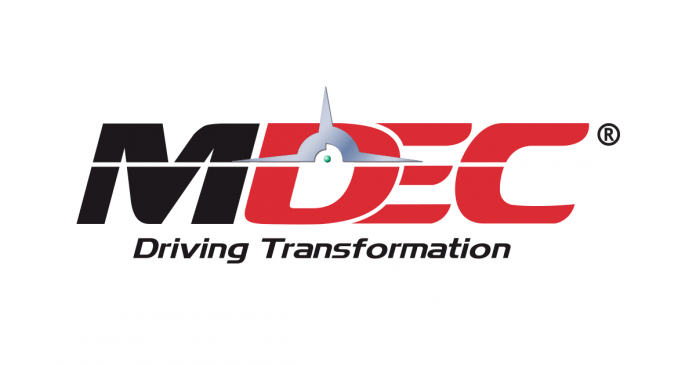The Malaysia Digital Economy Corporation (MDEC) has partnered 12 equity crowdfunding and peer-to-peer (P2P) platforms to help startups during the Covid-19 pandemic.
Communications and Multimedia Minister Tan Sri Annuar Musa said via the MDEC Innovation Exchange (MiX), the ministry has helped match large corporations with local innovators to resolve issues.
“To date, we have assisted organisations to tackle 75 problem statements from telecommunications to agriculture, while creating nearly 1,300 opportunities for relevant tech companies,” he said during the Alibaba Cloud’s 2022 Create@ Global Startup Contest (CACSC) opening ceremony.
The opening speech was read by MDEC chief executive officer Mahadhir Aziz.
Mahadhir said the government is cognisant of the importance of digital startups to build a thriving digital economy and the ministry, via MDEC as the country’s lead digital economy agency, has been nurturing the development and growth of the local digital startup ecosystem.
He told the media that MDEC aims to help tech-related venture companies to prosper in the market.
“We have seen a new sets of unicorns and Carsome is one of them. There is also another set of “soonicorns” that are not there yet, so we need to help those companies,” he said.
On the contest, Mahadhir said the CACSC, which focus on five core pillars, namely digital tech, food and beverage tech, agro technology, blockchain, and the Forth Industrial Revolution, will align to the ministry’s vision and mission to build a robust and empowering digital startup ecosystem.
These core pillars are in line with nine focus areas of Malaysia Digital identified as having high growth potential, opportunity, and importance, he said.
At the same event, Alibaba Cloud Intelligence Malaysia general manager Kun Huang said with this initiative, Alibaba will continue to propel the growth of tech start-ups to the next level.
“This contest acts as a platform to drive digital transformation and tech innovation, and for tech start-ups to unleash their potential via a network of investor ecosystems,” he said.
Highlights of the contest which will be until Oct 27 include investment Ready Workshop, Investment Technical Workshop and Corporate Exchange Programme.
This is the third contest since 2015 and 2019.
Meanwhile, the Ministry of Communications and Multimedia (K-Komm) is focusing on three main aspects in its efforts to make Malaysia an ICT hub, in line with the Malaysian Digital Economy (MyDigital) initiative.
Minister Tan Sri Annuar Musa said the three main aspects are communication infrastructure improvement, attracting digital investment and building manpower and human capital in the digital technology sector.
“To strengthen the connectivity ecosystem, K-Komm has implemented the National Digital Infrastructure Plan or Jendela as an effort to expand coverage and improve the quality of broadband services as a whole, through various initiatives and prepare the country for the transition to the 5G technology.
“K-Komm is also improving the connectivity ecosystem infrastructure under the Jendela+ plan to support the implementation of MyDigital. Jendela+ is focused on three main elements, namely, international connectivity (IC), internet exchange point (IXP) and data centre (DC),” he said during question and answer session at the Dewan Negara.
He said this in response to a question from Senator Mohd Apandi Mohamad who wanted to know the steps taken by the Ministry in making Malaysia an ICT hub in Southeast Asia.
On another development, online fraud and dissemination of false news could undermine the well-being and unity of the people thus posing a threat to the country’s independence.
Director of Warfare and Issue Management Division, Department of Information (Japen), Suwadi Guliling said the people needed to be more careful about the threat because it was an effort by irresponsible parties who wanted to create instability in the country.
“False news and fraud whether online or offline will bring great loss to the society and the threats could jeopardise the country’s independence and freedom,” he told reporters after launching the ‘Fly The Jalur Gemilang’ campaign in conjunction with the National Month celebrations here.
The event was jointly organised by Japen, Taman Desa Jenderam Hilir Residents’ Association Committee and Jenderam Residents’ Consultative Committee (JPP).
Therefore, as an agency under the Ministry of Communications and Multimedia (K-Komm), JaPen would continue its job in disseminating information related to false news and cyber threats through social media and face-to-face programmes, said Suwadi.
He also reminded the community, especially the young generation, that the struggle to defend the country’s independence was a continuous effort so that Malaysia would remain free, united and progressive.
Meanwhile, the Communications and Multimedia Ministry (K-Komm) will introduce a special application to curb activities related to hacking.
Minister Tan Sri Annuar Musa said a meeting with the application owner would be held outside the country soon.
“I am also asking Cyber Security Malaysia (CSM) to conduct specific studies on this application because there are still several matters that need to be scrutinised before it is launched for the people in this country,” he told reporters after conducting a walkabout in Kok Lanas.
He said the anti-hacking application can be used by all gadgets registered in the country, but the question of payment had yet to be decided.
“If there is a charge, we will ensure that the price is reasonable and suitable for all parties.
“This application can help to check hacking activities, which are getting prevalent now,” he added.
On another development, the government has allocated RM200 million for the setting up of 173 additional Keluarga Malaysia (Malaysian Family) Digital Economy Centres (Pedi) in the country which are expected to be ready next year, said Communications and Multimedia Minister Tan Sri Annuar Musa.
He said currently, there are 911 Pedi in operation nationwide, providing internet access, as well as basic digital skills to the local community, especially in the rural areas.
He said with the additional Pedi, it would realise the ministry’s aim for every state constituency to have at least one community Internet centre.
“So far we have recorded more than 1.2 million users who benefitted from Pedi,” he said, adding that with the additional Pedi, will further expand internet access to the community, especially in the rural areas.
“Apart from providing access to Internet facilities, there will also be Internet device for the people to take home … the wireless local area network facilities will also be expanded,” he said.
He told this to reporters after presenting appointment letters to the Pedi chairmen here.
Also present was the Kelantan director of Communications and Multimedia Commission (MCMC), Abd Mubin Mohd Zain.
According to Annuar, more than 900 people have been appointed as Pedi chairman in their respective area and that their appointment was made to facilitate transformation of the Pedi.
“Among the important things is to ensure that Pedi is active in organising programme, as well as to enable MCMC and the Malaysian Digital Economy Corporation (MDEC) to jointly carry out programmes that can encourage young entrepreneurs, especially those in the rural areas, to participate in the digital economy.
“We hope this initiative will open up more rooms for the young people to venture into business using the facilities available on e-commerce platform,” he added. – Bernama









